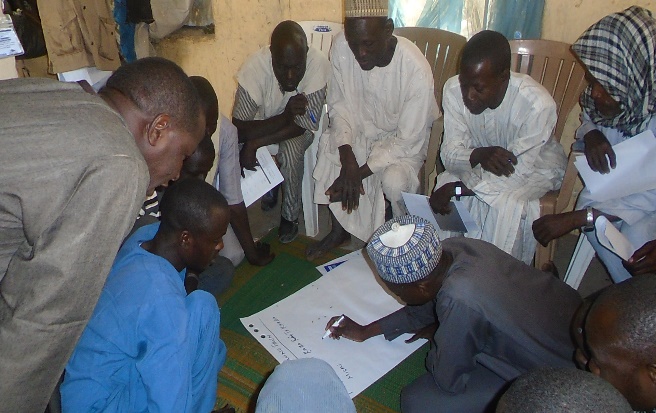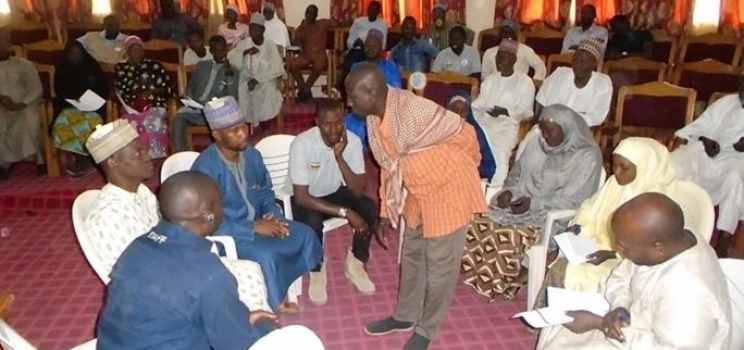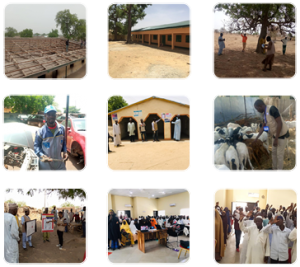Lacking formal knowledge, communities learn how to identify and respond to Early Warning Signs

training participants brainstorming during a group session
Against the backdrop of perceptible challenges inherent in the Early warning and response method in Borno state, SFCG and its implementing partners, CCDRN deemed it fit to organize a Step-Down Training for Community Response Network (CRN) Members from several communities each of Maiduguri Metropolitan Council (MMC), Mongonu, Jere and Mafa LGA of the state respectively. The training became essential as a result of the gaps identified within the CRN in identifying and responding to early warning signals within their respective communities
Lack of Cooperation from some community members; Lack of respect for law and order by some community members; Lack of understanding and Ignorance towards EW issues by community members, fear of reprisal and intimidation; Difficulty in verifying EW information, Harassment; Denial of information and fear of getting attacked; personal interests; deliberate with-holding of information and Issue of misperception on early warning issues among others where some of the overt challenges identified
However, at the end of the training, participants came up with recommendations which includes the need to support CRNs to expand to other areas within the community not currently represented in the CRN and the need for sustainability and inclusivity, which should translate into establishing more CRNs through the existing ones
In view of the above, Haruna Bukar Maisandari has this to say “You must ensure equality and inclusiveness and also to be impartial/gender sensitive in other to have equal representation. On the other hand, there should be no bias and religious differences in any community to succeed’.
Furthermore, CCDRN engagement officers were also urged to track the implementation of their actions plans and report accordingly, and consequently, Umar Abubakarmartefrom Lamisula in his testimony on the impact of CCDRNs efforts posits that, “after the Community Forum meeting held at the same venue as at 13th December, 2017 organized by CCDRN, we have definitely seen some changes in attitudes and behaviors by calling meeting with the Bulama in our Community and now as I’m speaking to you, we have succeeded in stopping guys of different age group with their counterpart from unnecessary chatting on the street. They asked them that if any of them wanted to be married after they had seen a girl, let him tell me as an elder of the community, I will Insha-Allah talk to your parents and agree on one thing. We used to call elders in our community and the youths both male and female to seat and iron out things that happened between us without taking it further”.
The need to link CRNs to the CSAD for improved relationship with key stakeholders was emphasized. There was a clamor for Additional training and advocacy, guidance & counseling, facilitation skills to be given to the CRN/community members as this will go a long way in helping them to find lasting solutions or manage situations. A participant, Bulama Modu Kurfrom Lamisula speaking on lessons learnt from the training says “We will call persons involved in any unruly behavior to advice him/her in a calm manner and also tell him/her that he/she is part of the community as a member and has to contribute equally in whatever way”. This now signals a positive shift from the existing trend towards a more favorable outcome.
On the whole, there was a consensus on part of Participants, acknowledging that the training had a great impact in improving their knowledge, skills and behavior towards addressing EW issues as they now understand their roles and need for action.
Trends on ground however, signals the need for continuous capacity building, monitoring and tracking of progress made.

